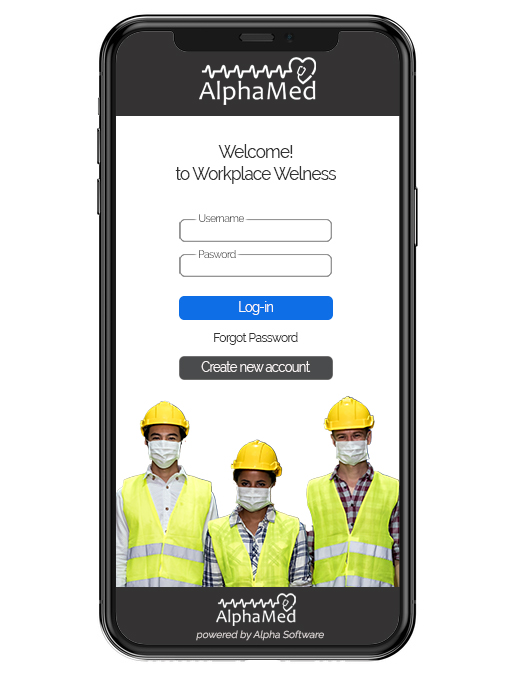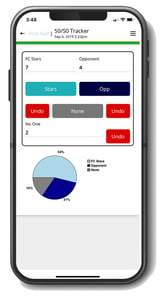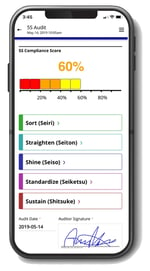The tech stack is expanding to provide an integrated development experience with data linking, data science insights, and novel AI solutions. The challenge that remains is making low-code development more secure and resilient.
So how do you make your low-code development more secure and resilient? In short, your low-code development platform needs solid access controls; you need to train your citizen developers in security basics and design, and your development teams should build applications within the platform's framework. IT also needs to keep an eye on all existing and new low-code applications.
All types of companies are offering low-code tools that combine databases with front-end interfaces. Many platforms offer business users intuitive user interfaces with drag-and-drop components to build web and mobile applications. The pandemic has accelerated the expansion of low-code development tools used to help an organization’s digital transformation.
Low-code is revolutionizing the landscape of software development. Essentially, it means that almost anyone can get applications built without much input from their IT and development teams.
Low-code platforms empower companies to rapidly deploy and use mobile and web applications. Citizen developers with little programming knowledge can use pre-built code components to create almost any solution. Despite its growing popularity, the aim of low-code is to complement traditional software development, not eliminate it.
Given the productivity, simplicity, and speed benefits of low-code platforms, it's easy to understand why companies are rapidly adopting low-code and no-code platforms. IT and development professionals need to know which security issues to be aware of to ensure that low-code platforms’ are secure.
While low-code platforms have amazing benefits for an organization, such as speeding up the development cycle, reducing the work of IT and professional developers, not every low-code tool is created equal.
You will only be successful with a low-code platform if it provides the functionality that makes it more effective than buying off-the-shelf software or building a custom, hand-coded applications.
Every low-code platform has its pros and cons. Only you - who are most familiar with your industry and its problems - will know which platform is best suited for your company's needs.

As you move to evaluate the low-code platform options available to you, ensure to evaluate to see if they measure up to enterprise-class:
To ensure that the low-code platform will meet your needs, you should evaluate the following:
While speed is critical, it doesn't matter how fast you can build an application if you can't deploy it quickly at enterprise scale or integrate it into your complex technology stack.
To assess the secure and resilience of a low-code platform, you should evaluate:
Low-code platforms are becoming more user-friendly and customizable, which is a double-edged sword. Users can easily connect to key enterprise data sources without understanding what they are connecting to. That's why low-code tools need intricate controls, or they risk sensitive data being exposed.
Wait for a Green Light from IT Before Deploying an Application: Before launching an application, consult with your IT and cybersecurity teams. The benefit of this increased visibility and the ability to monitor potential vulnerabilities. It also allows developers to follow best practices, such as noting the type of data an application will process, as well as setting up firewalls to mitigate risk.


Increase Awareness of a Platform's Security Features: Although most low-code platforms minimize most risks through advanced security features, users should still be familiar with each platform's security options. For example, platforms that allow custom code increase risk. Some, like Salesforce, have done an efficient job of including security guidance in their documentation.
Security Training for Citizen Developers: Since your citizen developers are not trained in application security practices, you should hold training sessions to cover the basics. For example, a demonstration of attacking an app will directly show its vulnerabilities.

Low-code has made it easier for citizen developers to build applications. When faced with a problem, they need a software solution – something that some IT department can't deliver right away.
This is where the problem of shadow IT begins. Citizen developers want to create something that works, but sometimes some don't adhere to security best practices.
When there is a problem that delays the creation of an application, the temptation for citizen developers is to outsource work to a third party which can increase risk. So how do you ensure that your low-code software is securely used by your citizen developers?
IT must be able to monitor the activity of citizen developers. This is not so much about stopping business users from creating apps, but about ensuring that confidential and legal data is not mishandled. To do this, they need to evaluate web and network traffic to identify apps from citizen developers.
Another way to ensure that your low-code platform is safe for is to provide IT training on declarative low-code development. As IT identifies and reviews more apps that touch sensitive or regulated information, they need to be cataloged and included in the standard security and compliance review.

Most low-code platforms have built-in security for various parts of an application, such as data access, APIs, web front-ends, and deployment.
Some have security features specifically customizable and designed for professional developers at platform level. There are certain internal and external risks that arise. Business and IT leaders need to make sure there are security measures in place that secure low-code app development.
It is important to check APIs for security using scanner tools or penetration testing before integrating them into low-code platforms. Most low-code platforms have a specific set of permissions to view or modify data.

Be sure that the low code software platform has a security framework to protect your organization's data.

Development teams must proceed with caution when setting these up. The risk is that if extensive permissions are given to a specific role in an organization, critical data may be left exposed. To avoid this, IT or development teams should set up organizational authentication providers or use a single sign-on (SSO) system. These help define roles and permissions in an organization.
Because many employees work remotely, many apps and APIs are used outside of an organization's network. This means that low-code apps need an extra layer of security to protect against outside attacks.
By implementing verification and audit steps from the beginning stages of app development, IT leaders can weed out vulnerabilities and security flaws that only become apparent in the post-production phases.
The Internet is everywhere, at least that's what the mobile industry tells us. However, there are countless times when we don't have a strong internet connection. If you are on a plane, the subway, or in a traffic jam, chances are you won't have a strong internet connection, which is why offline applications are essential. Whether you are developing online or offline applications, security is critical. Equally important are single sign on (SSO) systems, access controls, and the tracking of existing and new low-code applications.
You need to ensure your offline app can handle tough business needs, such as data synchronization, intelligent conflict resolution, access to databases, documents, drawings, and videos when you don't have an internet or phone signal.
Alpha Anywhere is a great example of a low-code platform that lets you build offline apps securely, easily, and affordably. This solution allows you to store data and view transaction detail changes, errors, and updates.

To be a truly mobile solution, an app must have offline functionality, but what are the benefits? Here are four of them:
Creating offline apps used to be expensive and time-consuming. Alpha Software revolutionized the development industry by creating a platform with sophisticated offline capabilities that allow developers to create apps without needing extensive coding knowledge.
You can make low-code development more secure and resilient by providing secure access controls and training your citizen developers in application security and design. You also need security champions who can act as intermediaries between IT and business users and perform security audits, provide a secure framework for using applications inside, outside, and offline.








You'll find Alpha Anywhere is the best low code development software for building web and mobile apps for business. We've made it easy get started with Alpha Anywhere Community Edition, a full-featured and FREE low-code development environment. We have a team of experienced app designers and developers and offer mentoring and tutorials on how to build mobile apps.
The Alpha platform is the only unified mobile and web app development and deployment environment with distinct “no-code” and “low-code” components. Using the Alpha TransForm no-code product, business users and developers can take full advantage of all the capabilities of the smartphone to turn any form into a mobile app in minutes, and power users can add advanced app functionality with Alpha TransForm's built-in programming language. IT developers can use the Alpha Anywhere low-code environment to develop complex web or mobile business apps from scratch, integrate data with existing systems of record and workflows (including data collected via Alpha TransForm), and add additional security or authentication requirements to protect corporate data.
Alpha Software Corporation, based in Massachusetts, produces award-winning software that speeds mobile and web app development and deployment for business and IT. The core technology includes two components. Alpha Anywhere®, a full-stack low-code app development platform for building and deploying web and mobile apps. In just hours, Alpha TransForm® turns complex paper forms into powerful mobile forms that speed data collection.
Alpha Software is an InfoWorld Technology of the Year award winner, and scores near-perfect reviews from customers on crowdsourced review sites.
Customers rate Alpha Software highly for its speed of development, flexibility, offline apps, rich feature set and ability to scale predictably. For more information, visit https://www.alphasoftware.com/